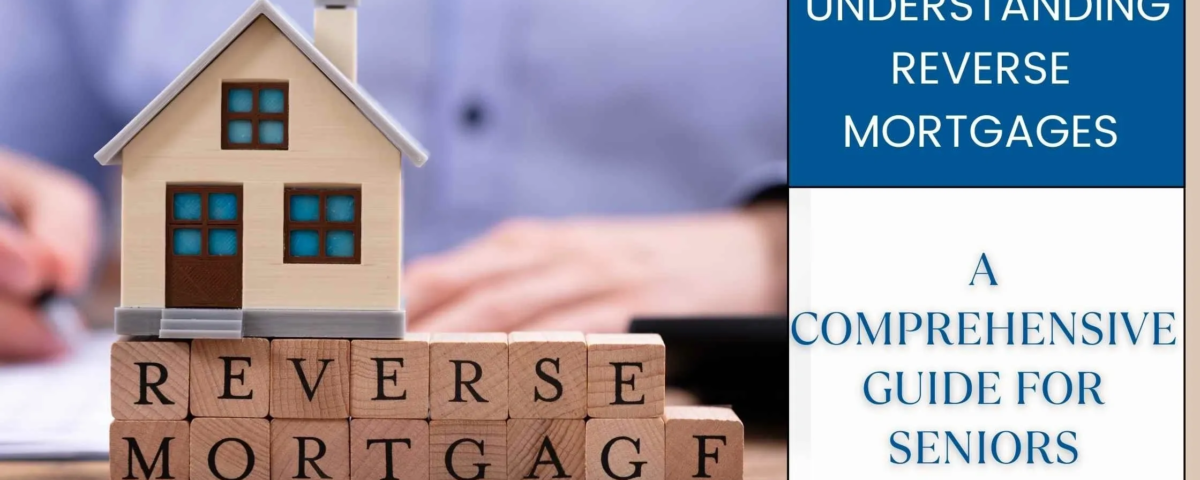A reverse mortgages can be an invaluable financial tool for seniors looking to tap into their home equity without selling their property. This blog will provide an in-depth look at reverse mortgages, focusing on their benefits, eligibility criteria, and the overall process. We aim to help you understand whether a reverse mortgage is the right choice for you or your loved ones.
What is a Reverse Mortgage?
A reverse mortgage is a loan available to homeowners aged 62 or older, allowing them to convert part of the equity in their home into cash. Unlike a traditional mortgage, where the homeowner makes monthly payments to the lender, in a reverse mortgage, the lender makes payments to the homeowner. The loan is repaid when the borrower sells the home, moves out, or passes away.
Types of Reverse Mortgages
There are three main types of reverse mortgages:
- Home Equity Conversion Mortgage (HECM): Insured by the Federal Housing Administration (FHA), HECMs are the most common type of reverse mortgage. They offer various payment options and are available through FHA-approved lenders.
- Proprietary Reverse Mortgages: These are private loans backed by the companies that develop them. They are generally for homes with higher values and may offer larger loan amounts than HECMs.
- Single-Purpose Reverse Mortgages: These are offered by some state and local government agencies and non-profit organizations. They can only be used for a specific purpose, such as home repairs or property taxes.

Benefits of a Reverse Mortgage
1. Supplementing Retirement Income – Reverse mortgages provide a way to supplement retirement income, helping seniors cover living expenses, medical bills, and other costs.
2. No Monthly Mortgage Payments – Borrowers are not required to make monthly mortgage payments. The loan balance, including interest and fees, does not have to be repaid until the borrower sells the home, moves out, or passes away.
3. Flexibility – HECMs offer various disbursement options, including lump sum, monthly payments, a line of credit, or a combination of these.
4. Non-Recourse Loan – Reverse mortgages are non-recourse loans, meaning borrowers will never owe more than the home’s value at the time of sale.
Eligibility Criteria for Reverse Mortgages
To qualify for a reverse mortgage, borrowers must meet the following criteria:
- Age: The borrower must be at least 62 years old.
- Home Ownership: The borrower must own the home outright or have a significant amount of equity.
- Primary Residence: The home must be the borrower’s primary residence.
- Financial Assessment: The borrower must undergo a financial assessment to ensure they can maintain the property, pay property taxes, and homeowners insurance.
The Reverse Mortgage Process
1. Counseling – Borrowers are required to meet with a HUD-approved counselor to discuss the implications of a reverse mortgage, ensuring they understand the terms and alternatives.
2. Application – After counseling, borrowers can apply for the reverse mortgage through a lender. The lender will review the application, assess the home’s value, and conduct a financial assessment.
3. Appraisal – The home is appraised to determine its current market value. This appraisal affects the loan amount.
4. Underwriting – The lender reviews the application and appraisal report to determine loan approval.
5. Closing –If approved, the borrower signs the loan documents, and the reverse mortgage is closed. The borrower chooses the disbursement method (lump sum, monthly payments, etc.).
Costs Associated with Reverse Mortgages
Reverse mortgages come with several costs, including:
- Origination Fees: Charged by the lender for processing the loan.
- Mortgage Insurance Premiums (MIP): HECMs require an initial and annual MIP, ensuring the loan is non-recourse.
- Third-Party Fees: Appraisal, title insurance, and other third-party services.
- Servicing Fees: Monthly fees for loan servicing.
Risks and Considerations
While reverse mortgages offer several benefits, it’s essential to consider the potential risks:
- Accumulating Interest: Interest accrues over time, increasing the loan balance.
- Impact on Inheritance: The loan must be repaid when the borrower passes away or sells the home, potentially reducing the inheritance left for heirs.
- Fees and Costs: The upfront costs and ongoing fees can be significant.
- Property Maintenance: Borrowers must maintain the home, pay property taxes, and homeowners insurance. Failure to do so can result in loan default.
Alternatives to Reverse Mortgages
Before deciding on a reverse mortgage, consider these alternatives:
- Home Equity Loan or Line of Credit: These options allow homeowners to borrow against their home equity with the requirement of monthly payments.
- Downsizing: Selling the current home and moving to a smaller, less expensive one can free up equity.
- Refinancing: Refinancing the existing mortgage to lower payments or access equity.
- Government Assistance Programs: Various state and federal programs offer financial assistance to seniors.
Common Questions About Reverse Mortgages
1. How much can I borrow with a reverse mortgage?
The loan amount depends on several factors, including the borrower’s age, the home’s value, and the current interest rates.
2. Will I lose my home with a reverse mortgage?
As long as you comply with the loan terms—living in the home as your primary residence, maintaining the property, and paying property taxes and insurance—you will not lose your home.
3. What happens if my home’s value decreases?
Since reverse mortgages are non-recourse loans, you or your heirs will never owe more than the home’s value at the time of sale.
4. Can I pay off a reverse mortgage early?
Yes, you can pay off a reverse mortgage at any time without penalty.
Conclusion
Reverse mortgages can be an effective financial solution for seniors looking to utilize their home equity without the need to sell or move. By understanding the benefits, risks, and process involved, you can make an informed decision about whether a reverse mortgage is right for you. For more information and tips on reverse mortgages and other financial topics, visit The Live Lead.
